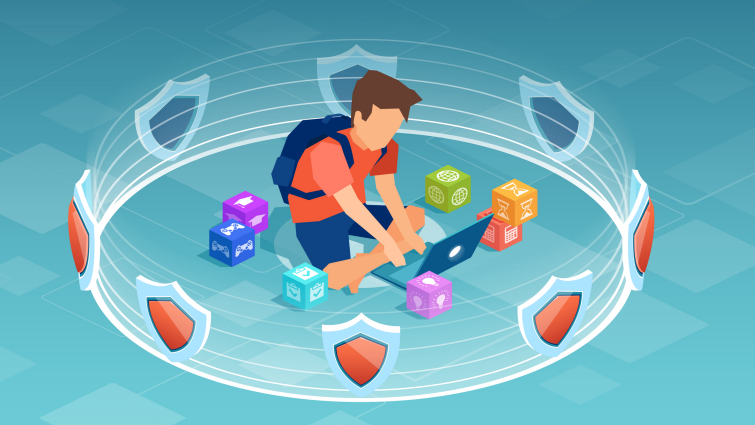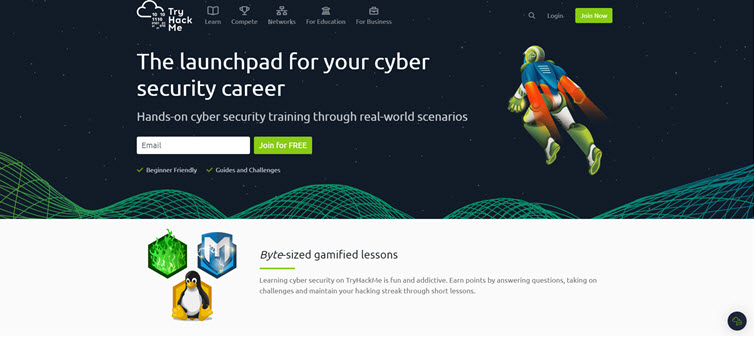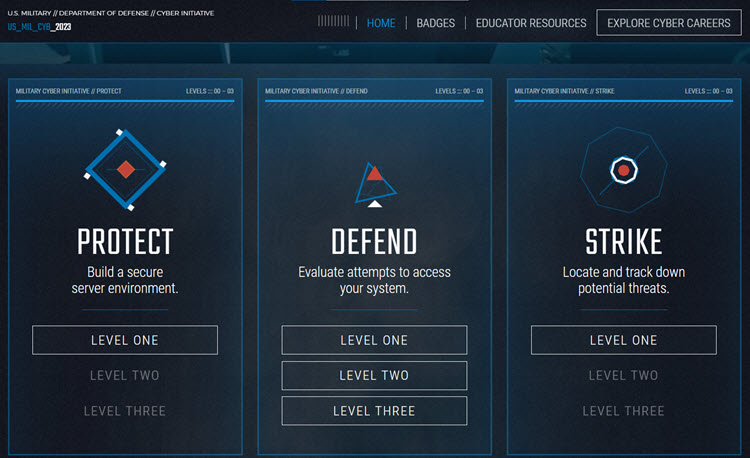We Live Progress
Discover six games that will provide valuable knowledge while turning learning about digital security into an enjoyable and rewarding adventure
14 Nov 2023
•
,
4 min. read

In this day and age, knowing your way around the digital world is not merely a valuable asset – it is a crucial life skill. With the internet permeating many aspects of our lives, cyberthreats have also proliferated and continue to evolve, and the importance of knowing how to recognize them cannot be understated.
Arguably, traditional learning methods can seem complex and daunting, especially for newcomers such as children and teens, who might be doubly at risk as they look for more independence online.
This is where gamification comes in. Educational games offer an interactive and practical approach to learning, making it engaging and accessible to both adults and a new generation of learners. It’s no wonder that they have become an effective tool in education, and their application to cybersecurity is no exception.
Why not get your children to watch ‘Hey Pug‘ on Safer Kids Online? Hey Pug is an animated series by ESET that teaches kids about online security and privacy in an engaging and entertaining way. Here are several games that will make learning about security accessible and enjoyable – not just for children.
Here are several games that will make learning about security accessible and enjoyable – not just for children.
OverTheWire
OverTheWire offers a series of free online wargames with varying objectives and levels of difficulty. Even people with no prior knowledge of cybersecurity can start with the introductory games and progressively build their skills. Each game presents a unique scenario where players must apply their knowledge to solve challenges and progress to higher levels. Many games follow the CTF format, where participants must capture the “flag” by solving challenges and completing exercises.

Popular games include Bandit, Narnia, and Natasha, each focusing on specific aspects of cybersecurity, such as vulnerability scanning, network traffic analysis, and password cracking. While the platform suggests an order in which to play the games, participants can choose any game that piques their interest. The platform emphasizes hands-on learning, enabling participants to actively engage with security concepts. This approach is particularly valuable in a field like cybersecurity, where real-world application of knowledge is crucial.
TryHackMe
TryHackMe is another free cybersecurity education platform that provides a variety of practical scenarios in the form of virtual labs. Users can explore simulated environments, including networks, servers, and systems, while working on missions that teach ethical hacking and troubleshooting skills.

The site offers step-by-step tutorials to guide users through realistic challenges, catering to individuals with both basic and advanced skills. It provides structured learning paths and rooms that focus on specific topics and offer a cohesive and interactive learning experience, allowing users to build their knowledge step by step.
Space Shelter
A joint effort involving the Euroconsumers consumer group and Google has led to the creation of SpaceShelter, an online game designed to raise consumer awareness about security issues and promote responsible online behavior. The game transforms learning into an adventure, featuring simple graphics, an attractive design, and high-quality sound.

Comprising five mini-games, SpaceShelter guides players to their final destination: the space shelter. Here, they can explore and understand the elements of a secure online account, from using a password manager to grasping multi-character authentication.
Google Interland
Google Interland, part of Google’s Be Cool on the Internet initiative, is primarily intended for children. The experience is divided into four adventures that introduce fundamental cybersecurity concepts in a simple and intuitive manner

Its primary goal is to empower participants, especially young ones, to avoid online traps, recognize safe behavior on social media platforms, manage passwords effectively, recognize bullies and predators, and understand responsible data sharing. The game features various levels and challenges, requiring players to answer essential questions while providing hands-on opportunities to apply their newfound knowledge.
Potato Pirates: Enter The Spudnet
Enter The Spudnet immerses players in the world of cybersecurity and computer networks, helping them grasp essential concepts, obviously while combining education with entertainment. One intriguing feature is the formation of alliances, where players can either betray their friends with cybercrime or join forces against bots to ensure everyone’s survival.
This platform offers an entertaining way to introduce and deepen anyone’s understanding of cybersecurity, regardless of whether they were familiar with technology or not. It can be played competitively or cooperatively and is available through a paid subscription.
Cyber Challenge
Created by the U.S. Department of Defense, Cyber Challenge invites players to contribute to the resolution of cyber threats and understand the roles involved in a military team operating in a cyberwar context.

Through an interactive and hands-on approach, Cyber Challenge provides a way for players to learn while confronting ever-evolving cyber threat scenarios. The scenarios closely mimic actual threats and attacks, tasking participants with devising strategies to detect, mitigate, and counter these threats effectively. It also teaches the participants about the teamwork and coordination required to defend against threats, promoting an understanding of how different roles work together to safeguard sensitive data and infrastructure.
Game on!
This is just a sample of engaging educational resources for anyone wishing to dip their toes into cybersecurity through practical challenges and interactive gameplay. They provide a structured and engaging way to learn and master various aspects of cybersecurity, as well as foster a supportive community of learners. Game-based training and education will nudge you to adopt safe digital habits and perhaps even prompt you to consider pursuing a career in security?
